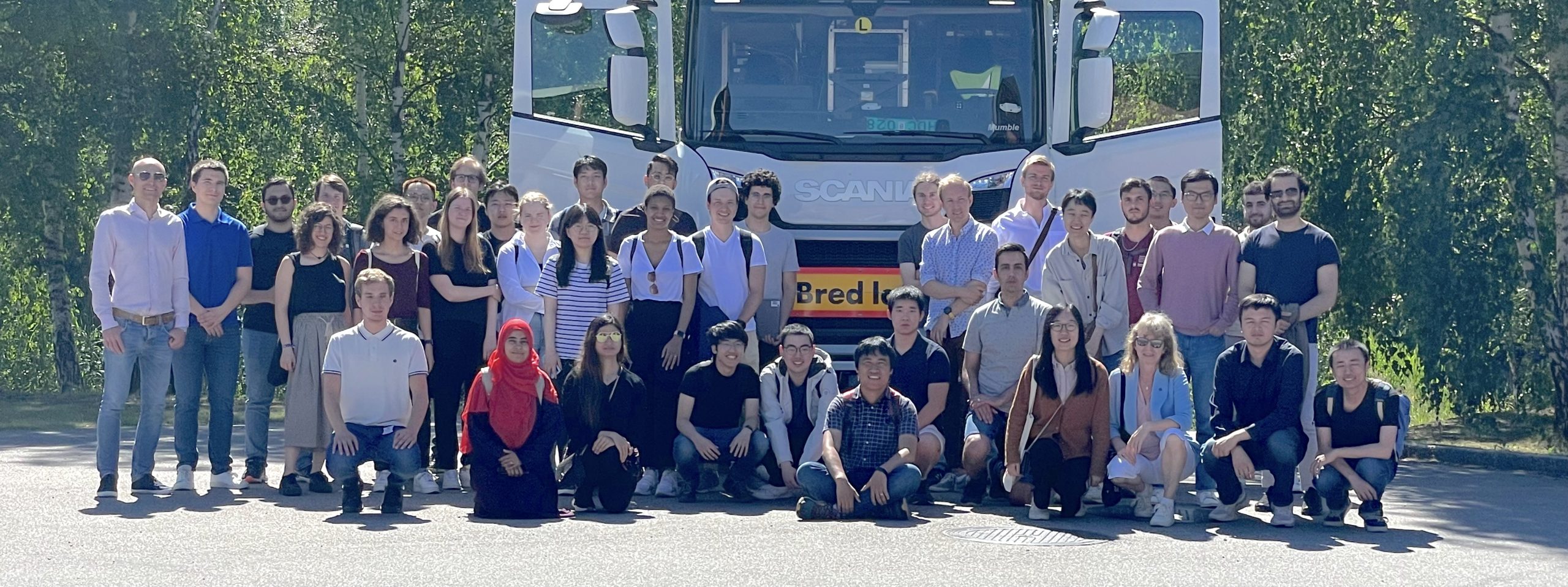All Digital Futures Summer Research Interns gathered at the Digital Futures hub on August 19 for the last meeting filled with more than 30 project presentations and a great buffet dinner. Students that had to leave Stockholm early joined via Zoom. The three best presentations were selected based on the voting of supervisors.
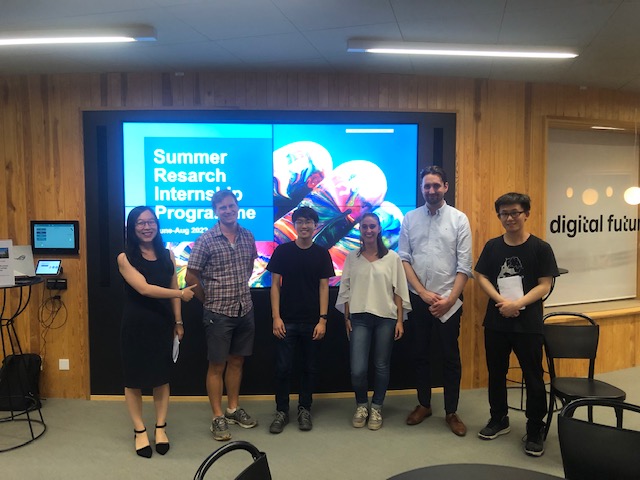
The winner of session 1 was Ana Candela Celdrán: Data-driven Evaluation of Movement in Patients with Heart Failures
The winner of session 2 was Mathias Schmekel: Resilient Scheduling of Controller Updates in Power Distribution Systems
The winner in session 3 was Sujet Phodapol: Air-Carriages for Microgravity Testbeds
We took the time to interview three interns to learn more about what’s been happening during the summer. Ermanno Bartoli studies”Artificial Intelligence and Robotics” at La Sapienza, University of Rome in Italy. Núria Flores Espinosa, coming from Catalunya, studies MSc in Information and Network Engineering, at EECS KTH and Jiaying Mao, from China, studies Electric Power Engineering, also at KTH.
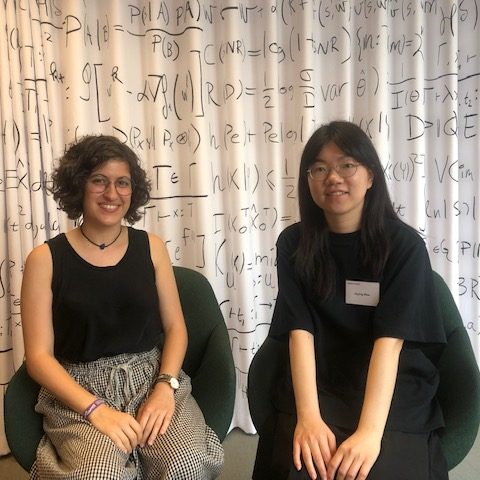
What made you apply for the Digital Futures Summer Research Internship?
– It seemed to be an interesting experience and an amazing environment where to meet new people with the same interest, and visit amazing places, says Ermanno.
– I had talked with my supervisor about doing a summer internship with him, and he suggested I apply for the Digital Futures internship, explains Núria.
– I thought it could be a precious opportunity to connect with professors and outstanding peers from different but similar fields, adds Jiaying. It is attractive to see interdisciplinary and other close engineering or digitalization topics – not just limited to my major. In addition, it is a good way to fill the summer gap before I can say goodbye to my master’s study and make the decision for my next step.
The programme included lots of activities, tell us a bit about what you experienced during summer.
– The industrial visit was the most impressive one for me, and also for many other interns I think. It was the first time for me to get so close to state of the art auto-driving technologies, from both knowledge and Scania’s real applications. Besides, the workshops provide uncommon chances to talk about topics of industrial and academic career. As for my work, I first implemented some Reinforcement Learning for bidirectional EV charging strategies, and then wrote an overview report on Virtual Power Plant by investigating literature, EU projects and business solutions. The most happy and inspiring thing, personally, is that every time after a presentation in the Digital Futures Hub, there are people who find me and tell me how they like it. Feedback always helps when moving forward alone, says Jiyaing.
– I had the possibility to work on a project dealing with social robotics, at the department of RPL (Robotics, Perception and Learning), and also I had the possibility to join some events dedicated to the digital summer students. Among these, the most interesting in my opinion was the visit to Scania offices, where I had the possibility to experience what that kind of research does, and also I met researchers from Scania, says Ermanno.
– The internship included talks with people from academia and industry and the opportunity to meet new people with similar interests and goals. The talks were a lovely way to learn more about the two main paths I can follow once I finish my master’s, and helped me a lot in making up my mind, explains Núria. The visit to Scania gave me the opportunity to see how a real company is and what they do. And it was very interesting to meet new people, learn about their projects, share experiences and ideas and work from the Digital Futures Hub with some of them.
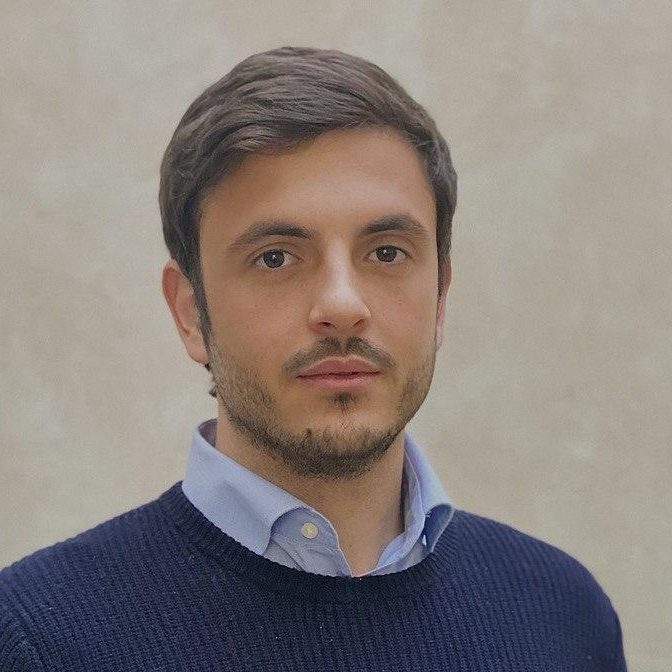
If you were to summarize in one sentence – what did you learn during this internship?
– I found out that the best way to learn is to share and communicate with others, says Núria.
– A lot of things. Because of the possibility to work on a project, I learn a lot of stuff that built up my professional background. But, from this experience I’ve learned also how to relate and communicate better with international people, says Ermanno.
– Confidence; also learn from the working status of other peers. And in professional, get to know more from problem formulation, algorithm implementation to presentation, as well as the way to schedule and organize literature review, concludes Jiaying.
Would you recommend other to students apply for the programme next year?
– Absolutely yes, this is an amazing programme, and it was very useful for me, says Ermanno.
– Of course! The Digital Futures internship brought me the opportunity to work on an interesting project, meet other students and hear the experiences of professionals in my field and I would recommend it to other master’s students, says Núria.
– Yes! I’d say come and enjoy, whether your own work is individual or already in a team. It is an ideal way to have a different summer and record the memory with Digital Futures, adds Jiaying.
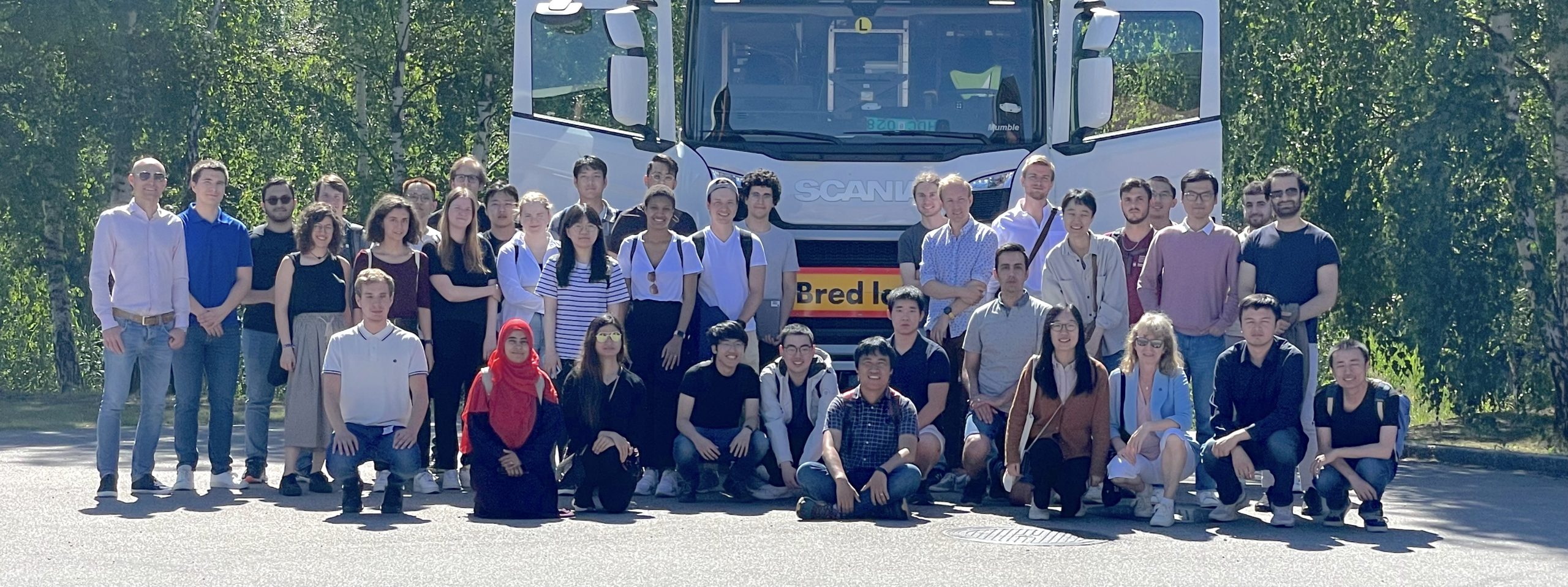
Digital Futures Summer Research Internships Programme is directed toward students on the bachelor’s and master’s levels to conduct research under the guidance of researchers affiliated with Digital Futures. Based on nominations from the Digital Futures faculty, 35 student interns were selected. The 2-month programme aims to provide a networking platform for students to conduct excellent projects in the digitalization area, interact with peers, and interact with industry and academia.
Digital Futures Summer Research Internships Organization Team:
- Qianwen Xu, Assistant Professor, KTH EECS
- Jan Kronqvist, Assistant Professor, KTH SCI
- Yu Xing, Postdoc, KTH EECS
- Mengfan Zhang, Postdoc, KTH EECS
- Jan Rolfes, Postdoc, KTH SCI
Supported by: Prof. Karl Henrik Johansson and Prof. Henrik Sandberg

